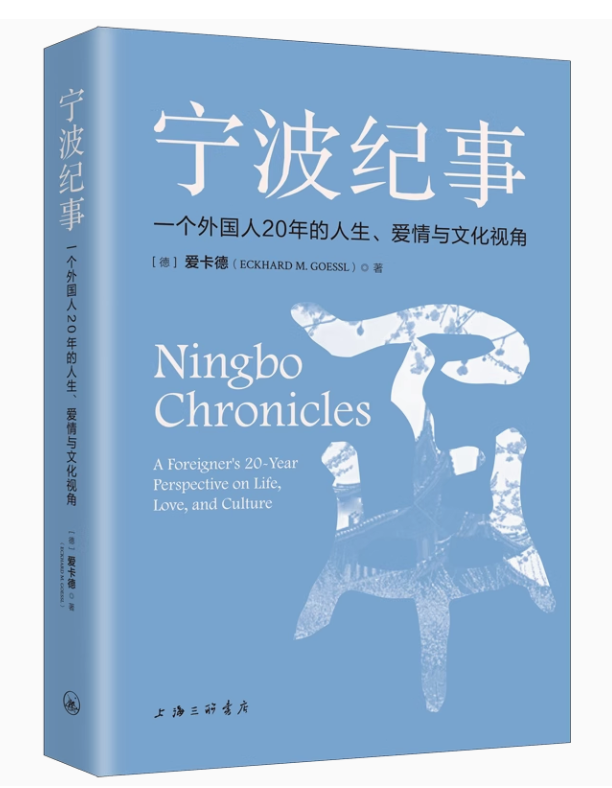2024 Ningbo Youth Exchange for Cultural City of East Asian rounded off
- Details
- Category: Ningbo News
- Published: Wednesday, 04 September 2024 13:32
The closing ceremony of the 2024 Ningbo Youth Exchange for Cultural City of East Asian was held on the first floor of Ningbo Museum on the afternoon of August 24.
The clothing works created by young people from China, Japan, and South Korea were presented on site, and an art show with the theme of “Marine Silk Road Blossoms” enabled the audience to appreciate the charm of Ningbo, an ancient and modern Oriental port city.
On August 22, as 27 teenagers from Jeju of South Korea, Nara of Japan, and Ningbo of China gathered in Ningbo, the exchange event officially began.
“For the four-day and three night itinerary, we arranged for the young people from three places to visit Tianyi Pavilion Museum, Ningbo Museum, the 5G Factory of Youngor Group, Dongqian Lake, and Hanling Ancient Street, to enhance communication and interaction among these young people and continue to write a new chapter of youth exchange in the cultural cities of East Asian”, said a person in charge from Ningbo Municipal Bureau of Culture, Radio, Film, Television and Tourism.
“I want to get some good luck from the Tianyi Pavilion in Ningbo!” said Kang Yurim, a Jeju girl in her third year of high school, when standing at the entrance of the “Top Scholar Hall” for a special photo after she got to know the meaning of hall. Besides, she even experienced woodblock printing techniques in person at the Tianyi Pavilion Museum and excitedly showed her works.
At the former site of the Ningbo Goryeo Embassy located in the Moon Lake Scenic Area, young people visited this important cultural relic that witnessed the friendly exchanges between China and Goryeo (former name of South Korea) in the past.
As soon as she entered the 5G smart clothing factory of Youngor, Ryosha Mitsuhata, a member of the Nara exchange delegation from Japan, was attracted by the scene before her. “I like clothing very much. When I go shopping for clothes, I never think about how they are made. Today, at the 5G factory in Ningbo, I saw pieces of clothing and some fabrics being uploaded from the machine, as well as the busy workers, I think it’s very meaningful. I will cherish our clothes even more in the future.”
The highlight of this trip is the closing ceremony performance. All the performances, including the “Bronze Mirror Dance” selected from the dance drama “Mulan”, the Yue opera piece “Chasing Fish and Watching Lights”, the traditional costume runway shows, and songs by the local jazz band JAZZCAMP, served to bring Japanese and Korean teenagers from afar closer to Chinese culture.
The young people from the three countries co-created nine sets of original costumes, with the themes of “Traces of Maritime Silk Road”, “Traces of Life” and “Traces of Flowers”. Through cyanotype, manual bookkeeping, lacquer painting, graffiti, and comprehensive materials, they worked together to create the “Maritime Silk Road Blossoms” in their eyes.
In the exchange activity in Jeju, the young people used plants, shells, and waste collected on Jeju beaches to create unique personal cyanotype works, thus combining the marine environmental protection theme with Chinese intangible cultural heritage handicraft. This time, after a second-time creation by the art teams in Ningbo, they were used in the design of clothes.
To inherit and carry forward the cultures of China, Japan and South Korea, since 2016, when Ningbo, Nara and Jeju jointly held the “Year of Cultural City of East Asian”, young people of the three countries have conducted friendly exchanges every year. Over the past nine years, this exchange mechanism has produced fruitful fruits of friendship by promoting mutual learning and reference among young people, promoting their own development, and enhancing mutual trust and consensus.
“This year is the ninth year that Ningbo, Jeju and Nara have jointly become the Cultural Cities of East Asia. We three cities have never stopped the exchange activities among teenagers. Even during the COVID-19 period, we insisted on holding exchange activities online.” said Du Cen, the leader of the Nara Exchange Delegation of Japan, who has been accompanying the group to Ningbo to participate in cultural and artistic exchange activities since 2016, and has made many friends in both Ningbo and Jeju. “Ningbo makes great efforts to arrange themed activities every year and never disappoints anyone. Next year is the 10th anniversary of the event, and we look forward to deeper exchanges and visits to Ningbo.









